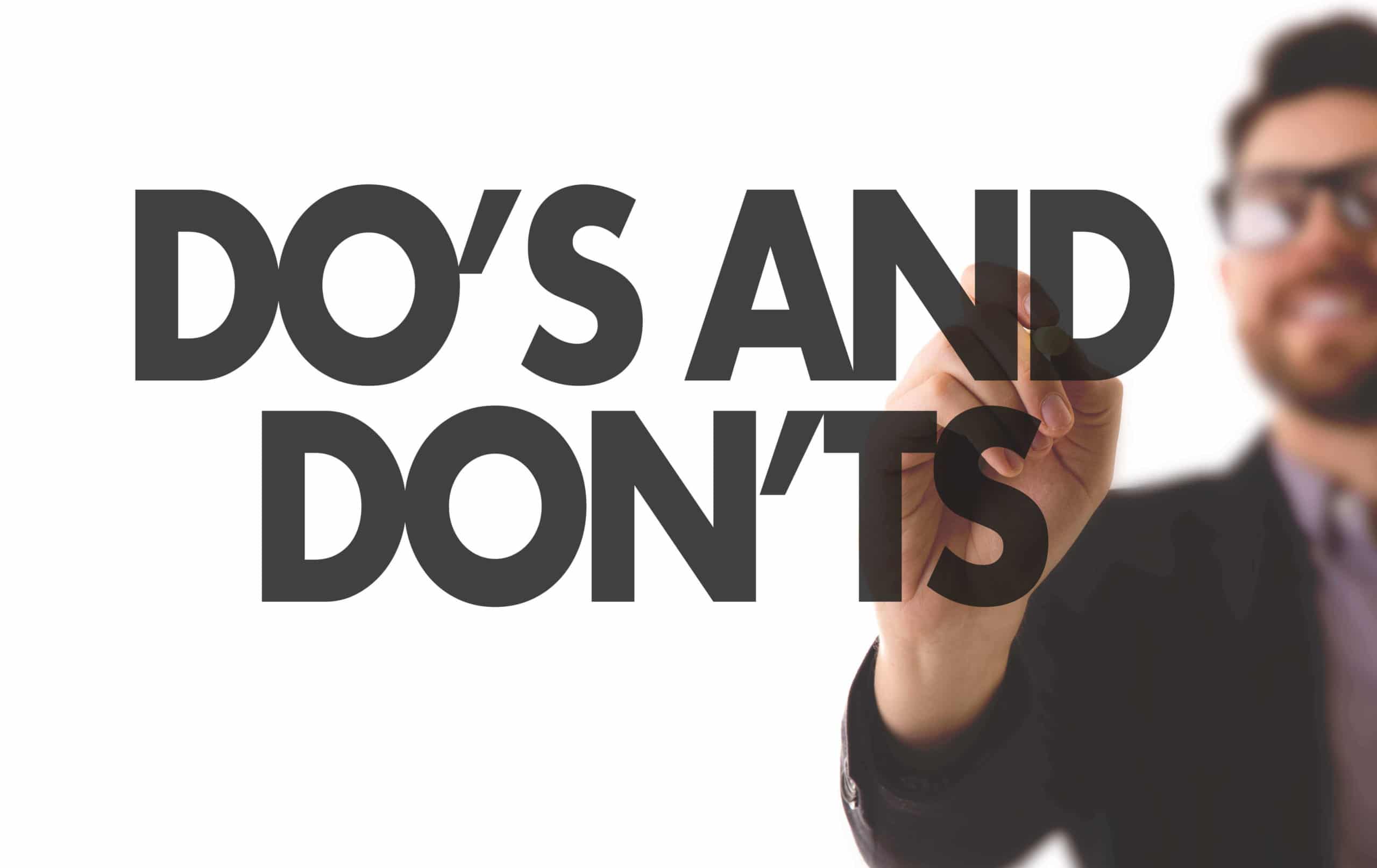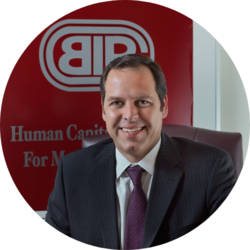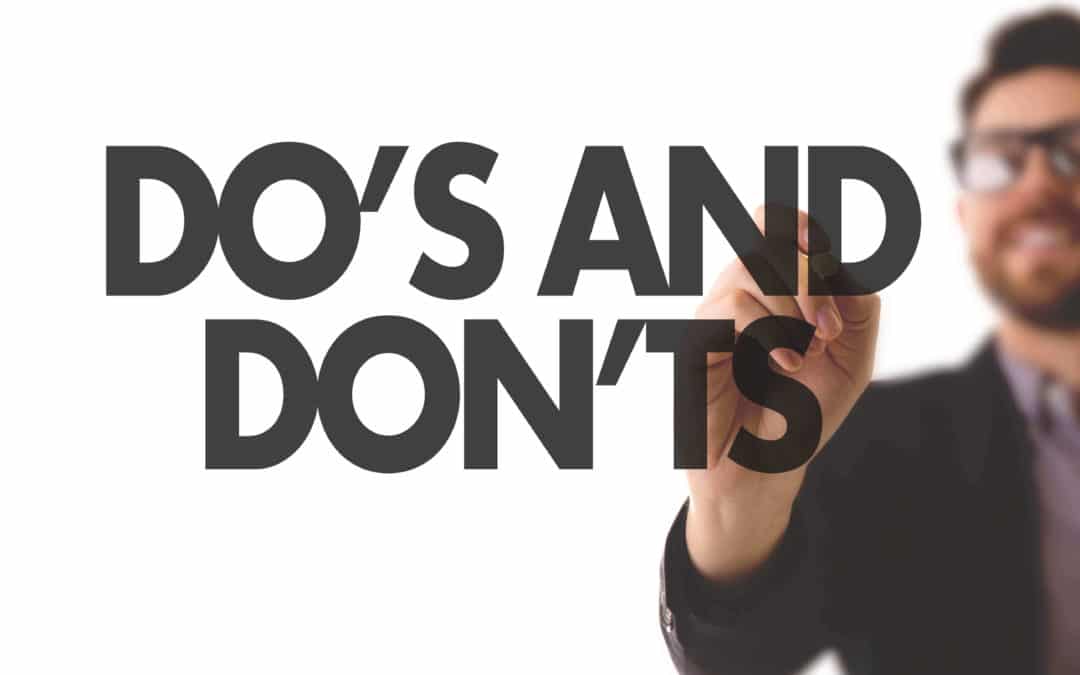
The Do’s and Don’ts of Recruiting: How to Prevent Bad Hires
Executive recruiting has a clear goal in mind: hire the best person to fill a job opening. But we all know that sometimes the process leads even the best hiring manager or recruiter astray. Sometimes the person who was so impressive during interviews turns out to be a bad hire — and often this happens with no warning signs whatsoever.
Bad hires are costly. The numbers can be staggering once you add in hiring costs, training expenses, the bad hire’s compensation, and ultimately any severance pay. Those numbers don’t even include the intangibles, such as the disruption among other employees who are picking up the slack, the potential loss of good employees’ loyalty, and the costs associated with mistakes and missed opportunities.
Your best course of action is to avoid making bad hires in the first place. Take a look at some executive recruiting do’s and don’ts to keep your hiring process on the right track.
DO: Discuss Hours and Time Off Expectations During the Hiring Process
Employees who come in late, leave early and seem to take personal time at random intervals can throw off your entire office — and with many people having become accustomed to setting their own schedules while working from home, this problem isn’t going away any time soon. Make sure you lay down your expectations before you make an offer. Even if your organization is committed to work-life balance and is happy, for example, to let parents off for teacher conferences, knowing the expectations on both sides in advance saves friction later.
DO: Create a Standard Recruiting and Interviewing Process
Most recruiters, interviewers and hiring managers think that their interviewing style is unique and more effective than others. One of the best steps you can take to avoid bad hires is to standardize your interviewing and executive recruiting process. In fact, if you don’t do this, your organization is five times more likely to end up regretting your hires. Make sure your interviewers are asking all candidates the same questions so you can compare their answers cleanly, and standardize each step of the process, from screening to final interview. Many interviewers are not prepared for the interview. Make sure that interviewers review candidate profiles prior to the interview, determine what to look for in candidates (experience, skills, and competencies), and plan questions in advance.
DO: Implement an Interview Scorecard Template
Make sure your scorecard includes 4 to 6 core competencies for the specific role and you write down the behavioral questions tied to each competency. Develop a rating scale (like 1 to 5) for each competency and behavioral skill. Make sure it is simple so it will be adopted by all interviewers. Encourage feedback is submitted independently and the same day of the interview, preferably have them complete the scorecard at the end of the interview. It should take no more than 5 minutes.
DO: Consider Internal Hires
Back in the 1970s and earlier, 90% of vacancies were handled by internal promotions. That number has dropped to 28% today — which raises a couple of questions. Why isn’t your company providing a clear path upward? And how can you attract the best talent if you’re not developing from within? Make sure you track your internal hires, and look at the talent you’ve already trained before going outside your company.
DON’T: Use the Same Job Description You’ve Used Before
When you let a bad hire go, the easiest path to follow is just to recycle the job description you already have on file. Don’t do this. Maybe there’s something you can change about or add to that job description that will prevent another bad hire in that slot. Go through the skills and qualifications required carefully, and add content about your firm’s culture and values (if they’re not already included) to increase your chances of finding a good fit.
DON’T: Skip Reference Checking
Verifying a candidate’s references is an important step in the hiring process. Don’t underestimate it. This is your chance to learn about a candidate’s strengths and weaknesses and their work style from their previous supervisors and other managers they worked with. The information you receive is also crucial in learning how to manage and get the best performance from a hired candidate. When checking references, I recommend you convey enthusiasm for the candidate you are evaluating. Verify basic information first like employment dates and title, then ask specific probing questions regarding personality, behavioral skills and performance. Ask open ended questions regarding the competencies and skills you seek. Remember to ask about the past employers work environment and culture and how the candidate fit into it. Go deeper if needed.
DON’T: Become Overly Reliant on Referrals
As LinkedIn has pointed out, 48% of new hires come about as a result of employee referrals. That may seem encouraging — after all, your current employees are likely to suggest people who would fit with your company culture, right? However, research from MIT professor Emilio Castilla shows that those new hires typically only work out as long as the person who hired them is still with your company. If the referrer leaves, the new hire loses their mentor or guide, and their performance drops. So maybe hold off on those referral bonuses. A balanced approach is always best.
Developing a sound strategy for executive recruiting is a key step in preventing bad hires. By focusing on a consistent recruiting process, you can increase the chances that the employees you hire won’t cause you regret six months down the line.

By Fernando Ortiz-Barbachano
President & CEO of Barbachano International (BIP),
Barbachano International is the premier executive search and leadership advisory firm in the Americas (USA, Mexico, Canada, and Latin America) with a focus on diversity and multicultural target markets. Outplacement, Onboarding and Exe


